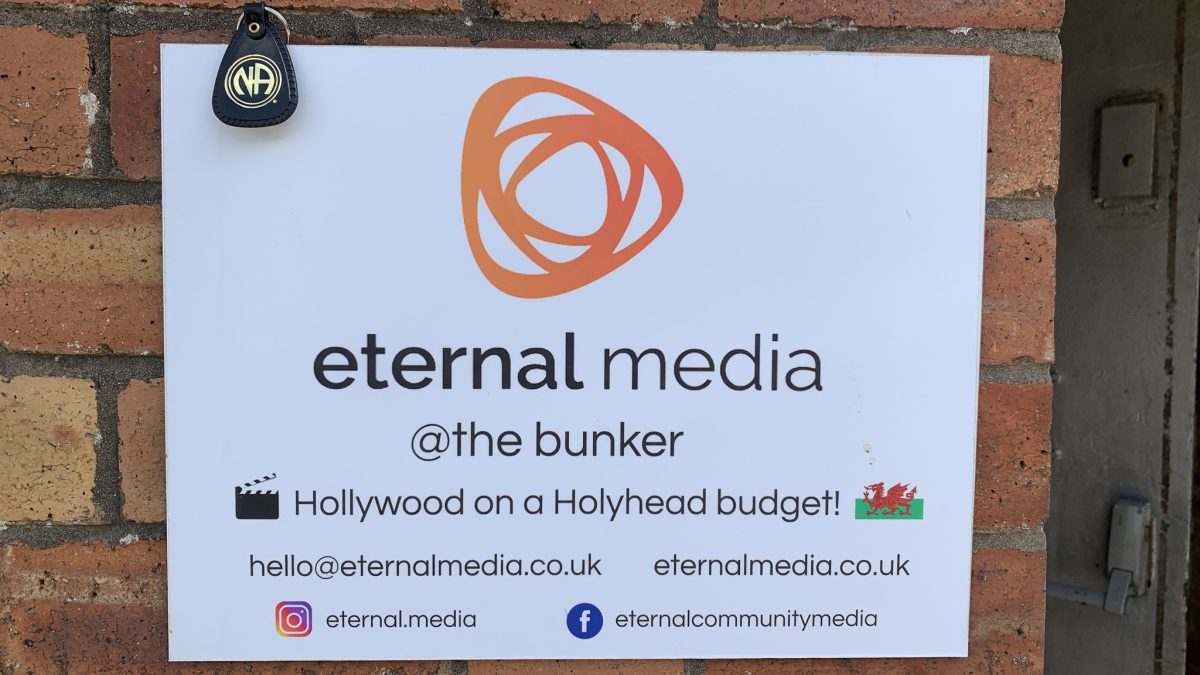For people who had lived almost exclusively in the world of addiction—for many years, some may have spent entire days shoplifting, selling the goods, buying the drug and using—it can be extremely difficult to know what to do when they stop using. This is a problem that Marcus emphasises in the second film below. These two films describe various aspects related to the functioning of Eternal Media.

1. Mixed Economy & Recovery Spaces [6’37”]
Marcus and his colleagues initially set up Eternal Media as a charity (Eternal Community Media), but as they started to attract funds from organisations like Sky News and MGM Studios in California they also set up a limited company. Wulf describes the situation at Eternal Media as a mixed economy, with Marcus and colleagues doing paid work alongside recovery-related work for free.
Marcus says, ‘It’s universal balance, this is the way I see it. I do think that the universe has got a great sense of humour.’ He used to give great deal of work to prisons, the police, counsellors, probation workers, doctors and health departments when he was in his addiction. ‘Now they give me a lot of work in my recovery.’
Eternal Media are making dementia films and alcohol awareness films for the Health Board, and they are training their media department. They are doing films for the police and a prison. They work with people who the Department of Work and Pensions (DWP) consider to be ‘the furthest from the job market.’ They run training academies for the DWP because the skills involved in filmmaking are very transferable to life. Confidence building, budgeting, communications, planning, creative stuff and logistics can all support people in their own life.
Marcus points out that Eternal Media is now based in a cold war nuclear bunker on the outskirts of Wrexham, as its ideal for TV studios and recording studios, and editing suites. It’s known as The Bunker, as Wulf points out. Marcus and his team are creating new spaces now—the place where the interview is taking place will be a community classroom. They are digging ponds and creating nature gardens outside, basically recovery spaces for people. A derelict site is being changed into something for people who just need that space. Wulf finds Eternal Media’s project ‘mind-blowing’.
2. The ‘Now What?’ [7’23”]
Marcus says that Eternal Media was created for the ‘Now What?’ He emphasises that he was a very busy addict. ‘Every waking moment was about getting money, to get drugs, repeat…’ When someone like him gets into recovery, they are thinking, ‘How I am going to fill those 24 hours? If you can’t remember what you used to do, or you were a kid when you got onto drugs, and you have no outside interests… now what?’
Eternal Media is all about promoting independence and getting people out of services. Marcus has friends who have been parked on methadone for 18 years. He believes that services are great, but they shouldn’t be the destination, they should be part of the journey. In so many cases, it seems that people are just parked in treatment services.
Marcus and his colleagues want to see people thrive. They’ve had over 530 people pass through Eternal Media, and whilst they have been engaged there not one has relapsed or committed crime. And Eternal are doing this for nothing most of the time. Marcus emphasises that it’s not enough to be clean and sober. You must have a purpose, a reason for getting up. When you don’t have a purpose, it’s easy to go back to addiction. People are very comfortable in addiction; they have a purpose. And they are good at what they do.
Marcus points out that Eternal Media are creating new projects all the time. He, or one of the others working at Eternal, go up to London and train with his colleague Peter Norrey, one of the top ten filmmakers in the UK. They bring new knowledge back to Wrexham. Eternal teach people from industry, and even the BBC, using broadcast-quality equipment. They support people moving on into other positions. And in relation to the recovering people who are involved in projects at Eternal, Marcus stresses that addicts aren’t thick. They had needed to be smart to survive.
Wulf stresses how important it is when the work of an organisation involving recovering people is recognised by the outside world to be at the top level. Marcus says that they once had a BBC producer visit and look at their work, and ask how much they charged. When Marcus told him, he said that they needed to triple the price.


